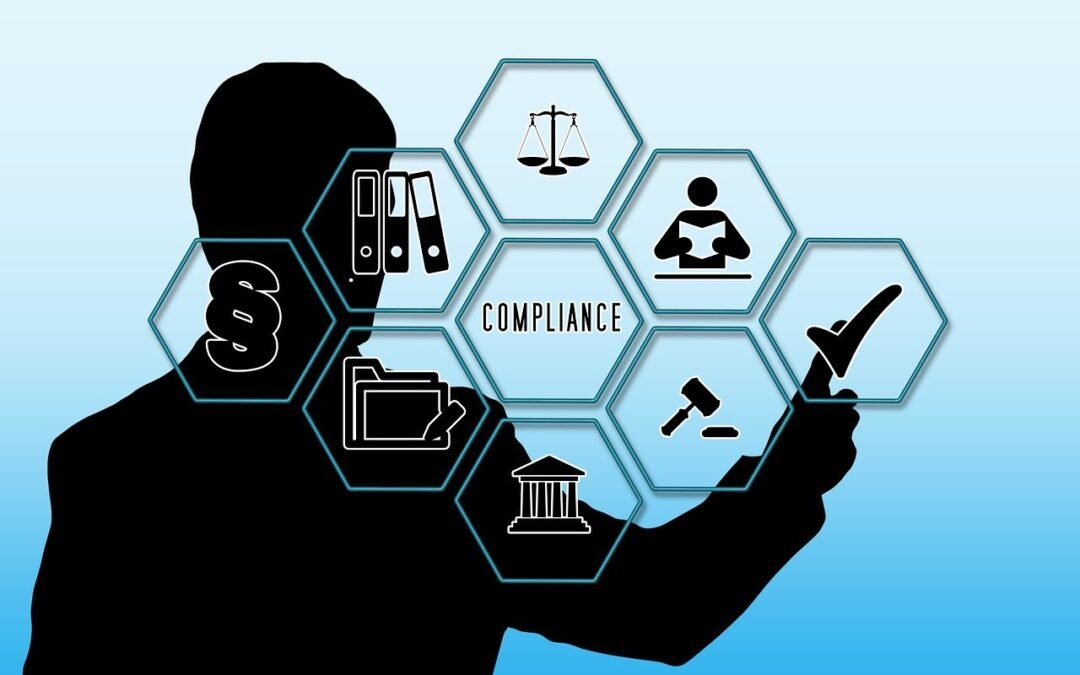Thailand is rapidly emerging as a digital powerhouse in Southeast Asia. This blog will show you about the new digital technology in Thailand—from innovative digital wallets and smart city initiatives to the integration of AI and blockchain across industries. As we witness an era of unprecedented digital transformation, Thailand’s strategic initiatives are setting the stage for a future of enhanced connectivity, improved public services, and robust economic growth.
In this article, we delve into the various dimensions of Thailand’s digital revolution, providing a detailed analysis, actionable insights, and a clear roadmap for businesses and policymakers alike.
Key Aspects of Thailand’s Digital Transformation
| Aspect | Description | Examples/Impacts |
|---|---|---|
| Smart City Development | Implementation of IoT, AI, and data analytics to enhance urban living and sustainability. | Bangkok’s smart traffic systems, integrated public services. |
| Digital Wallet Schemes | Government-led initiatives to boost consumption and support low-income households. | 10,000 THB transfers via digital wallets. |
| Artificial Intelligence | Use of AI to drive innovation in customer service, healthcare, agriculture, and finance. | AI chatbots, predictive analytics in agriculture. |
| Blockchain Integration | Leveraging blockchain for secure transactions, transparent supply chains, and digital IDs. | CBDCs and digital identity platforms. |
| Cloud Infrastructure | Investments in data centres and cloud regions to support digital services and AI applications. | Google’s $1B data centre in Chonburi, AWS expansion in Asia. |
Digital Transformation Landscape in Thailand

Thailand’s journey into the digital era is underpinned by its visionary “Thailand 4.0” initiative—a government-led blueprint aimed at transitioning the nation into an innovation-driven economy. This blog will show you about the new digital technology in Thailand as we explore how traditional industries are evolving with digital enhancements.
The digital landscape here is vibrant and multifaceted. Rapid adoption of mobile technology, widespread internet access, and a burgeoning startup ecosystem are catalyzing transformative changes. Key sectors such as finance, healthcare, education, and transportation are being reshaped by cutting-edge technologies that enhance efficiency, foster connectivity, and drive sustainable growth.
Government Initiatives Driving Change
The Thai government plays a pivotal role in shaping this digital revolution. Several public agencies are spearheading initiatives to integrate digital technology into everyday life:
- Digital Economy Promotion Agency (DEPA): Tasked with boosting digital literacy and innovation, DEPA supports the development of digital content, smart city projects, and workforce upskilling programs. Their recent initiatives aim to integrate AI into public services and promote sustainable tech ecosystems.
- Digital Wallet Schemes: In a bid to stimulate economic activity, the government has rolled out a digital wallet scheme that channels funds directly to low-income households. By distributing funds digitally—with stipulations on usage and expiry dates—the scheme not only boosts household consumption but also accelerates the shift toward cashless transactions.
- Smart City Initiatives: Cities like Bangkok, Phuket, and Chiang Mai are at the forefront of smart city developments. Through the deployment of IoT sensors, AI-driven traffic management, and integrated data platforms, these cities are enhancing urban services, reducing congestion, and promoting environmental sustainability.
These initiatives are designed to foster an inclusive digital economy that benefits both businesses and citizens, setting Thailand apart as a regional leader in digital transformation.
Emerging Technologies and Trends
Thailand’s digital ecosystem is not static—it is evolving at an impressive pace. Here are some of the most significant emerging technologies and trends reshaping the country:
Artificial Intelligence (AI) and Machine Learning
- Customer Service and Healthcare: AI chatbots and virtual assistants are improving customer interactions and streamlining healthcare services by offering personalized, round-the-clock support.
- Agriculture and Logistics: Predictive analytics and machine learning models help optimize crop yields and streamline supply chains, ensuring food security and efficient distribution.
Internet of Things (IoT)
- Smart Infrastructure: IoT devices are crucial in developing smart city projects. They enable real-time monitoring of traffic, energy consumption, and environmental conditions, leading to more efficient urban management.
- Connected Devices: From wearable health monitors to smart home systems, IoT technology is creating a more interconnected and responsive environment.
Blockchain and Digital Identity
- Secure Transactions: Blockchain technology is being adopted for secure financial transactions, transparent supply chain management, and the development of digital IDs, which are vital for enhancing cybersecurity and trust in digital systems.
- Central Bank Digital Currencies (CBDCs): Pilot projects for digital baht and other CBDCs are underway, showcasing how digital money can coexist with traditional cash while offering programmable features for targeted economic policies.
Cloud Computing and Data Centres
- Global Investments: Major tech companies are investing heavily in cloud infrastructure in Thailand. For instance, Google’s $1 billion data centre project in Chonburi and AWS’s expansion plans are set to bolster cloud services and AI adoption.
- Enhanced Connectivity: These investments ensure that Thai businesses and government services have access to reliable, high-speed cloud computing resources, essential for driving digital transformation.
Impact on Business and Society
The infusion of digital technology into Thailand’s economy is generating profound impacts across various dimensions:
Economic Growth and Job Creation
- Stimulating Consumption: Digital wallet schemes and direct cash transfers are providing a short-term boost to household spending, which in turn drives GDP growth.
- Employment Opportunities: Investments in cloud infrastructure and data centres are creating thousands of high-tech jobs, positioning Thailand as a hub for digital innovation.
Improved Public Services
- Smart City Benefits: Urban residents enjoy more efficient public transport, better-managed traffic systems, and enhanced safety through integrated digital solutions.
- Healthcare and Education: Telemedicine and e-learning platforms are making quality services accessible even in remote areas, reducing regional disparities.
Business Innovation and Global Competitiveness
- Startup Ecosystem: Thailand’s vibrant startup culture is fostering innovation, with companies leveraging AI, blockchain, and IoT to disrupt traditional industries.
- International Partnerships: Global investments and collaborations, such as those from Google and AWS, are enhancing the country’s technological capabilities and integrating it into the global digital economy.
These advancements are not only transforming industries but also creating a more inclusive society where technology empowers every segment of the population.
Future Trends & Predictions

As we look ahead, several trends are poised to further accelerate Thailand’s digital transformation:
- Expansion of CBDCs:
The evolution of digital wallets into fully functional central bank digital currencies could redefine monetary policy and payment systems, offering programmable money that supports targeted spending. - Advanced Smart City Solutions:
With the continuous integration of AI, IoT, and big data analytics, smart cities will become even more responsive, sustainable, and user-centric. Future projects may include the adoption of 6G networks and digital twins for urban planning. - Increased Global Investments:
The success of current projects is likely to attract more international investments, further enhancing Thailand’s position as a digital innovation hub. This includes larger commitments in cloud computing, AI research, and cybersecurity. - Workforce Upskilling and Education:
Continuous learning and digital literacy programs will become crucial. Initiatives aimed at training 250,000 individuals and beyond will ensure that the workforce is prepared to meet the demands of a rapidly evolving digital economy. - Enhanced Cybersecurity Measures:
As digital transactions and data flows increase, robust cybersecurity frameworks will be vital. Expect to see more stringent measures and regulations aimed at protecting sensitive data and ensuring trust in digital systems.
These trends indicate a promising future where digital technology not only drives economic growth but also transforms society in a holistic and sustainable manner.
Actionable Insights for Businesses
For companies looking to harness the power of Thailand’s digital transformation, here are some actionable steps:
- Invest in Digital Infrastructure:
- Action: Upgrade your cloud services and data analytics tools.
- Benefit: Improved efficiency and scalability for your operations.
- Adopt AI and IoT Solutions:
- Action: Integrate AI-driven systems for customer support and predictive maintenance.
- Benefit: Enhanced customer satisfaction and optimized resource management.
- Enhance Cybersecurity Protocols:
- Action: Implement robust cybersecurity measures to protect digital assets.
- Benefit: Increased trust and reduced risk of cyberattacks.
- Leverage Blockchain Technology:
- Action: Explore blockchain applications for secure transactions and supply chain transparency.
- Benefit: Greater transparency and reduced fraud.
- Upskill Your Workforce:
- Action: Invest in digital training programs for employees.
- Benefit: A skilled workforce that can adapt to new technologies and drive innovation.
- Collaborate with Digital Agencies:
- Action: Partner with tech innovators and digital marketing experts.
- Benefit: Accelerated digital transformation and enhanced market competitiveness.
By following these steps, businesses can position themselves at the forefront of Thailand’s digital revolution and reap long-term benefits in an increasingly competitive global market.
YOU MAY ALSO LIKE
Unlocking the Potential of Tiwzozmix458: Your Ultimate Guide
Conclusion
Thailand’s embrace of digital technology is reshaping its economic, social, and business landscapes. With government initiatives like the digital wallet scheme, smart city projects, and significant investments in cloud infrastructure, the nation is poised to become a regional leader in digital innovation. This blog will show you about the new digital technology in Thailand as it not only boosts economic growth but also enhances the quality of life for its citizens.
As we move into the future, continued investments, strategic partnerships, and a focus on upskilling will be key to sustaining this momentum. We invite you to share your thoughts below and explore our guide for more insights into how digital transformation is revolutionizing industries worldwide.
Frequently Asked Questions
Q: What are the key drivers behind Thailand’s digital transformation?
A: Government initiatives such as Thailand 4.0, DEPA programs, and digital wallet schemes, along with significant global investments in cloud and AI infrastructure, are major drivers.
Q: How is digital technology impacting everyday life in Thailand?
A: Innovations like smart city solutions, digital payment systems, and telemedicine are enhancing urban living, boosting economic activity, and providing better access to essential services.
Q: What role does AI play in Thailand’s digital ecosystem?
A: AI is being used to improve customer service, streamline healthcare, optimize agriculture, and enhance logistics, making businesses more efficient and responsive.
Q: How can businesses benefit from the digital transformation in Thailand?
A: By investing in digital infrastructure, adopting AI and IoT solutions, and enhancing cybersecurity, businesses can improve operational efficiency, customer satisfaction, and competitiveness.
Q: What future trends should companies in Thailand be aware of?
A: Key future trends include the expansion of CBDCs, advanced smart city developments, increased global investments in digital technologies, and ongoing workforce upskilling.
Q: How is blockchain being integrated into Thailand’s digital landscape?
A: Blockchain technology is used for secure financial transactions, transparent supply chains, and the development of digital identities, which are essential for building trust in digital systems.










